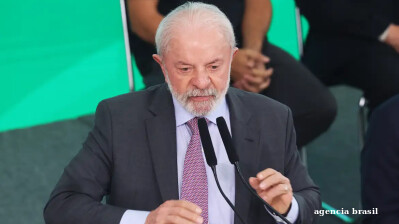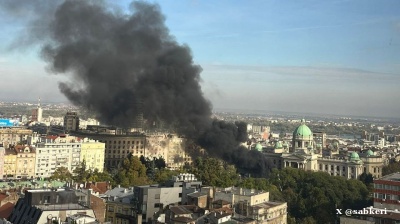Reformist candidate Masoud Pezeshkian emerged victorious in Iran's runoff presidential election, triumphing over his ultraconservative rival, Saeed Jalili, who had narrowly secured a spot on the second ballot.
Early elections on June 28 failed to yield a majority winner, and the top two candidates faced each other in the runoff on July 5.
The results were announced on the morning of July 6 local time, after elections, with a higher turnout than in the previous round.
As per statistics provided by the Interior Ministry, 49.8% of the electorate participated in the runoff, a hike from the record-low 40% in the first round.
Pezeshkian secured 16.84mn votes, constituting the majority of the total valid ballots, while Jalili garnered 13.53mn of the votes.
In the final stretch of their campaigns, both parties tried to persuade undecided voters to support their respective candidates.
Jalili tried to lure villagers while Pezeshkian counted on those who boycotted the first round, as well as religious minorities, to turn out in his favour.
In brief remarks after announcing his victory, Pezeshkian thanked people who voted for him "affectionately" regardless of his lack of backing from a particular political party.
He also said he would extend a hand of friendship toward his rivals, who he called "our brothers", saying "we just fight over power, we wouldn’t if it were for the sake of God".
Pezeshkian belongs to a faction known for its centrist social approaches and advocacy for normal international relations, including with the West.
He particularly campaigned on promises to resolve Iran’s standstill with the west over its nuclear issue to secure relief from sanctions, as well as remove the country from the blacklist of the Financial Action Task Force (FATF) to facilitate international transactions.
Pezeshkian maintained that the 8% economic growth outlined in the country’s seventh economic plan is unattainable under sanctions and while blacklisted by the FATF.
He said under the circumstances, even friendly countries, such as China, Russia and Iraq, will refuse to engage with Iran even when contracts are signed.
It is not clear how much authority Pezeshkian will have in foreign policy, since it is an area controlled strictly by the leader Ali Khamenei.
Kamal Kharrazi, advisor to Khamenei, had earlier told the FT said that while there would be “some differences” in approach depending on who won the election, the overall foreign policy strategy was determined by Khamenei and would remain the same.
On social issues, Pezeshkian expressed more flexible views, although he agreed with his opponents on the core ideas.
He police action to enforce mandatory hijab, a law that caused deadly nationwide protests in 2021, but said girls need to be educated in this regard from an early age.
Regarding internet freedom, Pezeshkian said he would stand up to government restrictions and end the VPN market, but he claimed that bans under special circumstances are necessary based on global protocols.
Higher turnout
The second round of the election saw higher turnout thanks to a clash of opposites orchestrated by the Islamic Republic.
Many non-voters rushed to the polls in fear of Jalili’s rise to power. His hardline policies have convinced many Iranians to choose between bad and worse, a common logic in the Islamic Republic’s electoral history.
Neda, 40, from Karaj, told BNM she would feel guilty if Jalili became president because of her inaction. She said she couldn’t risk even if there was a 1% chance that votes were counted.
Azam, 45, also said people have already shown their opposition in the first round with 40% participation, and it is now time for action to prevent a catastrophe.
Ghazal, a Jalili supporter, posted a picture of Jalili sleeping in the rear seat of a car on her X account, saying she would vote for someone who is like “us, ordinary people” and does not seek a soft bed.
Boycotters argued that people’s votes were ineffective, and Pezeshkian had already been chosen by the establishment.
Sahar, 38, told BNM that a high turnout is giving legitimacy to the Islamic Republic again and is an oath of allegiance to Khamenei.
Many also criticised voters on social media for betraying those who were killed in the 2019 and 2021 protests, with a trending hashtag #treacherous_minority.
A user posted a photo of a plain cloth security agent with a gun in his hand shot during the 2021 protests, saying, “You will be in the [voting] queue on Friday beside him”.
News

Russia rules out seizing EU assets but warns of retaliation if confiscations proceed
Russia will not seize European Union assets currently operating within its borders, Russian Deputy Finance Minister Alexei Moiseev has said.

China’s state-owned oil giants halt Russian crude purchases in response to US sanctions
China’s state-owned oil giants have paused their purchase of Russian crude oil in response to recent US sanctions targeting Moscow’s two largest oil firms, Rosneft and Lukoil

Switzerland reopens Baghdad embassy after 30-year closure
Switzerland reopened its Baghdad embassy after 30 years, with Iraqi and Swiss foreign ministers officiating ceremony reflecting confidence in Iraq's stability and signalling expanded economic cooperation.

Brazil's Lula announces fourth presidential run at 80
Brazilian President Luiz Inácio Lula da Silva has announced he will seek re-election in October 2026, confirming his candidacy during a state visit to Indonesia on October 23.




